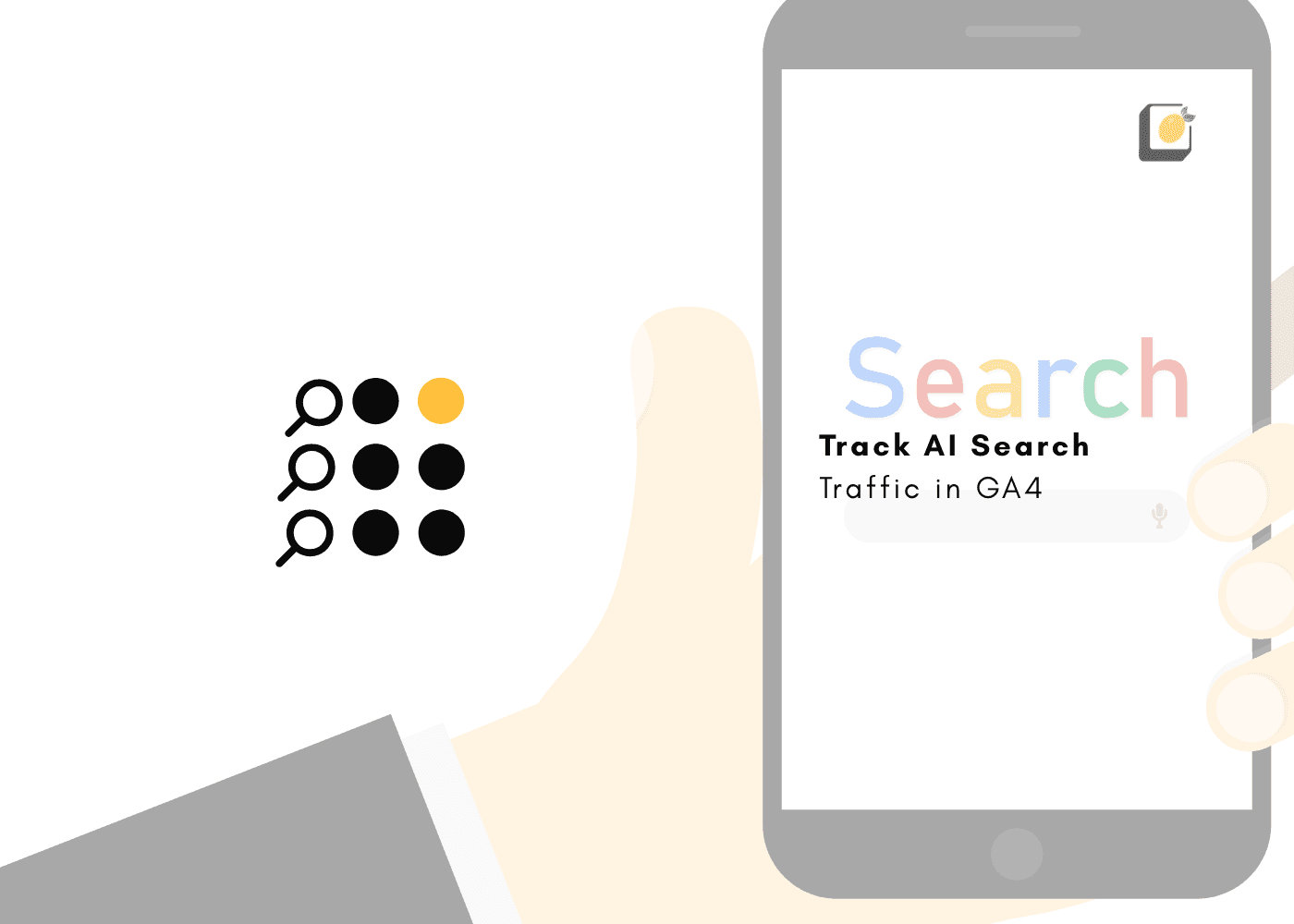The Future of Technical SEO: Trends and Predictions for Website Ranking
September 16, 2024
Join 500+ brands growing with Passionfruit!
Hi there, fellow SEO enthusiasts!
As we dive into 2024, I can't help but feel excited about the future of technical SEO. If you've been keeping an eye on this field, you'll agree that the pace of innovation right now is truly mind-blowing.
The landscape is evolving rapidly, bringing new challenges and opportunities for all of us in the digital marketing world. So, grab a cup of coffee (or tea, if that's your thing), and let's explore what's on the horizon for website ranking SEO. Whether you're a seasoned pro or just starting out, there's something here for everyone as we unpack the SEO trends and predictions shaping the future of technical SEO.
What Trends Are Shaping the Future of Technical SEO?
Before we jump into predictions, let's take a moment to understand the current landscape. Knowing where we are is crucial to figuring out where we're headed. Several key trends are currently shaping the future of technical SEO, and understanding these will help us navigate the ever-changing world of search engine optimization.
1. AI and Machine Learning: The Game Changers
Artificial Intelligence (AI) and Machine Learning (ML) are no longer just buzzwords – they're revolutionizing how search engines understand and rank content. Google's BERT and MUM algorithms are prime examples of this shift. BERT, which stands for Bidirectional Encoder Representations from Transformers, helps Google better understand the context and nuance of search queries. MUM, or Multitask Unified Model, takes this a step further by enabling Google to understand and generate language across multiple modalities like text, images, and video.
But what does this mean for us SEO folks? Well, it's pushing us to think beyond traditional keyword optimization. We need to focus on creating content that truly answers user queries and provides value.
It's not just about stuffing keywords anymore; it's about understanding user intent and delivering comprehensive, relevant information. As search engines become more adept at understanding the meaning behind queries, our content strategies must evolve to keep pace. Tools like Surfer can help with AI-driven content optimization.
2. Core Web Vitals: User Experience Takes Center Stage
Google's Core Web Vitals have become crucial ranking factors, and I don't see this changing anytime soon. These metrics measure loading performance, interactivity, and visual stability of web pages. They provide a quantitative way to measure user experience, which has always been a priority for Google.
As an SEO expert, I can't stress enough how important it is to optimize for these metrics. It's not just about pleasing search engines; it's about providing a stellar user experience. After all, isn't that what we're all aiming for?
Faster load times, responsive interactivity, and stable page layouts contribute to a positive user experience, which in turn can lead to higher engagement, lower bounce rates, and ultimately, better rankings. Semrush offers a suite of tools to help monitor and improve Core Web Vitals.
3. Mobile-First Indexing: It's a Mobile World
Mobile-first indexing is no longer a future trend – it's the present reality. Google has fully embraced mobile-first indexing, meaning it primarily uses the mobile version of a website for ranking and indexing. This shift reflects the growing dominance of mobile devices in internet usage.
If your website isn't mobile-friendly in 2024, you're not just missing out on rankings – you're potentially alienating a huge portion of your audience. Responsive design, fast mobile load times, and easy navigation on smaller screens are now essential elements of technical SEO. It's no longer optional to have a mobile-friendly site; it's a necessity for survival in the mobile-first world. Tools like Google's Mobile-Friendly Test can help ensure your site is optimized for mobile.
4. Voice Search Optimization: Speak Up!
With the rise of smart speakers and voice assistants like Google Assistant, Amazon Alexa, and Apple's Siri, optimizing for voice search has become a critical aspect of technical SEO. Voice queries tend to be longer, more conversational, and often phrased as questions compared to typed searches.
To stay ahead of the curve, we need to optimize for natural language queries and provide concise, direct answers. This involves rethinking our content strategies to focus on conversational keywords, question-based queries, and featured snippet optimization. By providing clear, concise answers to common questions, we increase our chances of being the chosen result for voice searches. Answer the Public is a great tool for finding question-based keywords.
5. Structured Data: Speaking Google's Language
Structured data, often referred to as schema markup, helps search engines understand the content and context of web pages. As search results become more diverse and feature-rich (think featured snippets, knowledge panels, and carousels), properly implemented schema markup becomes increasingly important.
By using structured data, we can provide search engines with explicit clues about the meaning of our content. This can lead to richer search results, such as star ratings, recipe information, or event details, which can improve click-through rates and drive more targeted traffic. As Google continues to develop new ways to display information in the search results, websites that effectively use schema markup will be better positioned to take advantage of these opportunities. Google's Structured Data Markup Helper is a useful tool for implementing schema.
How Does Technical SEO Affect Future Ranking?
Now that we've covered the trends, let's talk about how these will impact website rankings moving forward. Technical SEO forms the foundation upon which all other SEO efforts are built, and as search engines become more sophisticated, the technical aspects of a website play an increasingly crucial role in determining rankings.
1. Site Speed and Performance: The Need for Speed
Site speed has been a ranking factor for years, but its importance is only growing. With the introduction of Core Web Vitals, Google has made it crystal clear that user experience metrics are key to ranking success. Faster load times not only improve user experience but also contribute to higher engagement and lower bounce rates.
My prediction? Websites that consistently deliver fast, smooth experiences across all devices will have a significant advantage in search rankings. It's time to get serious about performance optimization, folks!
This means leveraging techniques like compression, caching, and content delivery networks (CDNs) to speed up load times. It also means optimizing images, minifying code, and eliminating render-blocking resources. Every millisecond counts in the race for rankings. Tools like GTmetrix and PageSpeed Insights can help identify speed issues.
2. Crawlability and Indexation: Leaving a Trail of Breadcrumbs
Ensuring that search engines can easily crawl and index your website remains fundamental to SEO success. However, as websites become more complex and content-rich, maintaining good crawlability and indexation becomes more challenging.
I believe that in the coming years, advanced crawl budget optimization and strategic use of robots.txt and XML sitemaps will become even more critical. Crawl budget refers to the number of pages a search engine bot will crawl on your site in a given timeframe. By optimizing your crawl budget, you can ensure that search engines are spending their time on your most important pages, rather than getting bogged down in low-value or duplicate content.
Robots.txt files and XML sitemaps are powerful tools for controlling how search engines crawl and index your site. By using these effectively, you can guide search engines to your most important content and prevent them from indexing pages that may hurt your rankings, such as duplicate or thin content. Screaming Frog's SEO Spider is a great tool for analyzing your site's crawlability.
3. Structured Data: Speaking Google's Language
As mentioned earlier, structured data is becoming increasingly important for SEO. By marking up your content with schema, you can provide search engines with explicit information about the meaning and context of your pages. This can lead to rich results in the search pages, such as review stars, recipe information, or event details.
I believe that in the coming years, websites that effectively use schema markup will capture more valuable SERP real estate. Rich results often have higher click-through rates, as they stand out visually from the standard blue links. By implementing structured data, you can make your listings more attractive and informative, which can drive more targeted traffic to your site. Google's Rich Results Test can help validate your structured data.
4. Mobile-First Indexing: Prioritizing Mobile Experience
With Google's switch to mobile-first indexing, the mobile version of your website is now the primary version for ranking and indexing purposes. This means that if your mobile site has less content, slower load times, or a poorer user experience than your desktop site, your rankings could suffer.
I predict that as we move further into the mobile-first era, websites with strong mobile experiences will have a distinct advantage in the rankings. This means prioritizing responsive design, fast mobile load times, and easy navigation on smaller screens. It also means ensuring that your mobile site has all the same content and functionality as your desktop site. Google's Mobile Usability Report in Search Console can help identify mobile issues.
5. Voice Search Optimization: Conversational Content is King
As voice search continues to grow in popularity, optimizing for natural language queries will become increasingly important. Voice searches tend to be longer, more conversational, and often phrased as questions.
To rank well for voice searches, I believe that websites will need to focus on creating conversational, question-based content. This means anticipating the questions your target audience might ask and providing clear, concise answers. It also means optimizing for featured snippets, as these are often used as voice search results.
By creating content that directly answers common questions and using structured data to mark up your content, you can increase your chances of being the chosen result for voice searches. Moz's Keyword Explorer can help find question-based keywords.
Conclusion: Embracing the Future of Technical SEO
As we look ahead to the future of technical SEO, one thing is clear: the landscape is becoming more complex, but also more exciting. The key to success lies in balancing technical expertise with a deep understanding of user needs and behaviors.
Remember, at the end of the day, search engines are trying to provide the best possible experience for users. By aligning our SEO strategies with this goal, we're not just optimizing for algorithms – we're creating better, more useful websites for real people.
So, are you ready to embrace the future of technical SEO? It's going to be a wild ride, but by staying informed, adaptable, and user-focused, we can navigate the challenges and opportunities ahead. If you're looking for expert guidance on your SEO journey, consider partnering with Passionfruit. Our team of SEO specialists can help you stay ahead of the curve and achieve your website ranking goals.
Let's dive in and shape the future of search together!
FAQ
How often should I conduct a technical SEO audit?
Conduct a comprehensive technical SEO audit at least once every 6 months. However, monitor key metrics like crawl errors, page speed, and Core Web Vitals on a monthly basis.
What is the most important technical SEO factor for rankings in 2024?
While all factors are important, Core Web Vitals and overall page experience signals are expected to be among the most critical technical SEO factors influencing rankings in 2024.
How does mobile-first indexing affect desktop-only websites?
Desktop-only websites will still be indexed, but they may face significant ranking disadvantages. Google strongly recommends having a mobile-friendly version of your site to ensure optimal ranking potential.
What percentage of searches are expected to be voice searches by 2025?
While exact predictions vary, many experts estimate that voice searches could account for 30-50% of all searches by 2025.
How important is HTTPS for SEO in the future?
HTTPS is already crucial and will become even more so. By 2024, it's likely that non-HTTPS websites will face severe ranking penalties or may not rank at all for competitive keywords.















